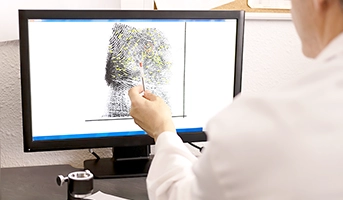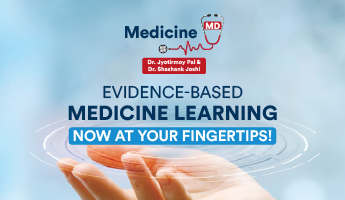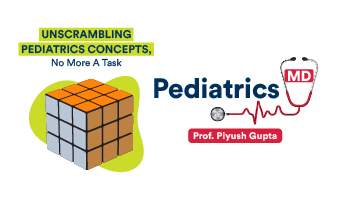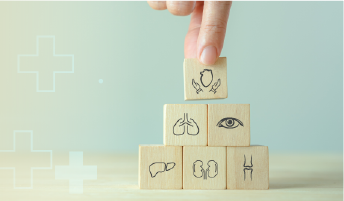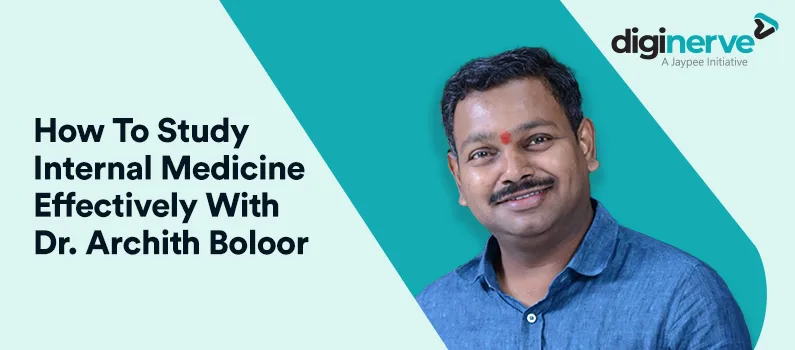

Tips to Study Medicine in MBBS Final Year
The curriculum of MBBS is vast and the MBBS final year comprises the most difficult subjects and modules. At this stage of your MBBS journey, you are well equipped with studies along with ward postings and competitive exam preparations.
Undoubtedly, the life of a medical student can be stressful and exhausting due to the demanding schedule of studies and clinical postings. Despite the numerous benefits of being a doctor, you must acknowledge the depth of the profession. As an aspiring doctor, you must be ready to work under extreme pressure and in life-or-death scenarios while doing your duties flawlessly to ensure that patients are treated effectively, and lives are saved.
Here are some effective and reliable tips to study Medicine in MBBS.
Medicine is an interlinked subject, and hence, you need to have a foundational knowledge of all the other subjects. For instance, if you are studying Bronchitis, an infection in which the bronchial tubes become inflamed and swollen and fill with mucus. You need to first know the anatomy and physiology of the respiratory system, and then for the diagnostic result interpretation, you need to understand pathology and radiology and to understand the treatment and drugs, you need to have a sound knowledge of pharmacology and biochemistry. Thus, you must learn a concept or a disease in an inter-related manner for better understanding and retention.
Although reading and understanding the concepts is important and remains the first step but retention and retrieval are the other crucial aspects of studying. Understanding the subject will ease the learning process but only focusing on learning new and new topics will end up with a question of memory! Learning new topics is equally important as remembering the old ones. Hence, make sure to prepare a study plan that focuses on both learning and retention. Otherwise, after a certain period, our memory starts to fade which makes us difficult to recall and interlink the concepts. Medicine is a clinical subject, that finds its application in the real world where your memory or retention power has to be very solid. Spaced practice is quite helpful in this case. This is an amazing tip for MBBS final year preparation. You must stay curious to learn more. Try fascinating examples, mnemonics, storylines, and cases to retain the information for a long time.
Students have different learning styles, so stress your strengths and weaknesses while creating a study plan. Also, prioritizing time management is highly crucial. Always consider your personal preference while setting up your study area while considering your environment. Whether you are an AM or a PM person, consider this point while your study plan to multifolds the benefits of your preparation. These prove effective study strategies for medical students.
Once you are done with learning a concept or about a disease, say Diabetes Mellitus, then don’t go to the next topic without practicing questions on diabetes mellitus. Practicing questions will help you evaluate your understanding of the topic and improve your performance. Solve the questions from all the topics of the given module or disease, such as disease mechanism, pathophysiology, differential diagnosis, and the first line of treatment. This practice will enhance your understanding of the subject leading to better retention and let you know which topic you are well-versed in, and which topic needs to be re-studied.
Must Read: Important Topics of Medicine in MBBS
Another effective study technique for medicine is solving clinical cases. Suppose you are learning about Diabetes Mellitus, you can either learn via clinical case or practice a case after understanding a concept. But don’t miss it. Your actual test will be a practical case in a hospital; the clinical case is your helping hand for that practice. While solving a clinical case, you will have to answer all the questions in a single go. What are the symptoms a patient is suffering? What is the probable diagnosis? What is the disease mechanism and source of infection? What is the pathophysiology of a disease? How to relate to the patient history? What are the treatment methods possible? How to figure out the best possible treatment for a particular patient? What is the best first-line treatment? What medications to prescribe and determine the effect of the route of administration with dosage? Which surgery is to be carried out and how? What are pre- and post-operative requirements? How to determine the treatment efficacy? And so on.
You are also required to learn effective patient communication. The best way to practice this is during ward postings. It connects you to a real-life scenario along with deepening your learning. Try to see a case from different angles to reach the utmost conclusion.
Medicine is a vast subject and there can be topics where one or the other thing is similar and while memorizing the concept or answering a question or especially while learning symptoms and drugs, you might get confused. This feels so bad that you put in so much effort in understanding and learning but ultimately get confused. Whenever you are learning a similar concept, try to add different cues, learn with different examples, and learn in a different manner with a different example. Try and keep the information separate with new cues, flashcards, or mnemonics and try to learn concepts in an inter-related manner, wherever feasible.
Always remember, treat your body well and everything will fall into place. If you are physically or mentally fatigued, you won’t be able to learn effectively, and the chances of human error increase. Be well-rested to focus on your studies. Take sound sleep, proper rest, and feed yourself healthy. Avoid stress. Studying medicine and having a work-life balance can be exhausting and stressful at times. To avoid such situations and challenges, take breaks, get enough sleep, exercise, do leisure activities, and eat well. Talk with your loved ones and figure out solutions rather than stressing about problems. Listen to good music and try the things you love doing.
Try to incorporate these MBBS Medicine final year study tips in your study schedule to excel. To get expert guidance, you can enroll in Dr. Archith Boloor’s video lectures for medicine on the DigiNerve app. The DigiNerve’s Medicine for UnderGrads course not only includes online medicine course video lectures but also self-assessment questions, and worthy notes. This online medicine course helps you understand the topics along with developing practical and clinical skills. You get to learn in a case-based format aligned with the CBME curriculum. Along with excelling in medicine prof exams, this course also helps you with NEET-PG medicine exam preparation.
Frequently Asked Questions (FAQs):
Q1. Which book to study for medicine final year MBBS?
Ans. An Insider’s Guide to Clinical Medicine by Archith Boloor & Anudeep Padakanti, Exam Preparatory Manual for Undergraduates: Medicine by Archith Boloor & Ramadas Nayak, Self-Assessment & Review Medicine (Part A & B) by Mudit Khanna, and Harrison’s Principles of Internal Medicine are some of the recommended books to study medicine in MBBS.
Q2. How many months is the final year of MBBS?
Ans.The duration of the final year MBBS is of 18 months.
Q3. What is the best way to study MBBS?
Ans. Students have different learning styles, so stress your strengths and weaknesses while creating a study plan. Also, prioritizing time management is highly crucial. Always consider your personal preference while setting up your study area and consider your environment. You are an AM or a PM person, and considering this point will enhance your preparation to a greater extent.
Related post
Related Courses
Cosmetic Botulinum Toxin Simplified
Dr Rasya Dixit , Dr Urmila Nischal , Dr K. C Nisch...
Critical Care Simplified
Dr Yatin Mehta , Dr Subhal Dixit , Dr Kapil G. Zir...
Advance Course in Ultrasound and Infertility
Dr Sonal Panchal , Dr Chaitanya Nagori
Ganga Videos on Spine Surgery
Prof Rajasekaran Shanmuganathan , Dr Ajoy Prasad S...
Pathology for UnderGrads
Prof Harsh Mohan , Prof Ramadas Nayak , Dr Debasis...
Microbiology for UnderGrads
Dr Apurba S Sastry , Dr Sandhya Bhat , Dr Deepashr...



